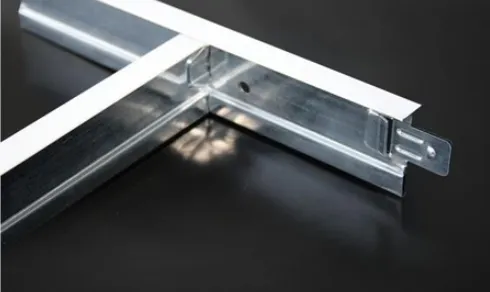Sep . 25, 2024 01:08 Back to list
Exploring the Benefits of PVC Gypsum for Modern Construction Solutions
PVC Gypsum A Versatile Building Material
In recent years, the construction industry has witnessed a significant shift towards innovative materials that not only enhance aesthetic appeal but also promote sustainability. One such material that has gained traction is PVC gypsum, a composite product that combines the benefits of polyvinyl chloride (PVC) and gypsum. This article explores the characteristics, advantages, and applications of PVC gypsum in modern construction.
PVC Gypsum A Versatile Building Material
One of the primary advantages of PVC gypsum is its resistance to moisture and mold. Traditional gypsum boards can suffer from water damage, which can lead to structural issues and health hazards due to mold growth. In contrast, PVC gypsum is impervious to water, making it perfect for areas such as kitchens and bathrooms where humidity levels are typically higher. This characteristic ensures longevity and reliability in various environments.
pvc gypsum

Another key benefit of PVC gypsum is its lightweight nature. Compared to traditional building materials, PVC gypsum is considerably easier to handle and install, reducing labor costs and time during construction. Additionally, the lightweight properties contribute to lower transportation costs, making it an economical choice for builders and developers.
PVC gypsum also boasts impressive sound insulation capabilities. The composite structure of PVC and gypsum helps to minimize sound transmission between rooms, creating a quieter and more comfortable living or working environment. This feature is particularly appealing in urban settings where noise pollution can be a significant concern.
Furthermore, the environmental impact of PVC gypsum is worth noting. While PVC has faced criticism in terms of environmental sustainability, advancements in recycling technology and the production processes of PVC gypsum have mitigated some concerns. Manufacturers are increasingly adopting eco-friendly practices, ensuring that the production of PVC gypsum has a reduced carbon footprint.
In conclusion, PVC gypsum emerges as a valuable asset in the realm of modern construction. Its unique blend of durability, moisture resistance, lightweight properties, and sound insulation capabilities makes it a preferred choice for architects and builders alike. As the industry continues to innovate towards sustainable building solutions, PVC gypsum is poised to play a significant role in shaping the future of construction, combining practicality with aesthetic appeal.
-
Quality Ceiling Trap Doors & Access Panels | Easy & Secure AccessNewsAug.30,2025
-
Durable Ceiling T Grid Systems | Easy InstallationNewsAug.29,2025
-
PVC Gypsum Ceiling: Durable, Laminated Tiles for Modern SpacesNewsAug.28,2025
-
Pvc Gypsum Ceiling Is DurableNewsAug.21,2025
-
Mineral Fiber Board Is DurableNewsAug.21,2025
-
Ceiling Tile Clip Reusable DesignNewsAug.21,2025







